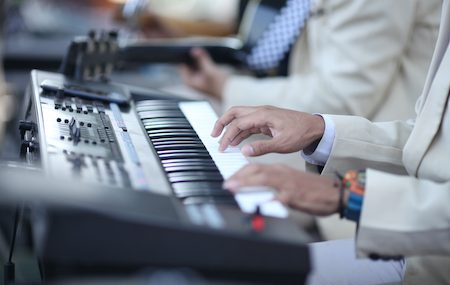Has staying in place made you rethink everything?
Instead of being out and active 24/7, many of us are learning to appreciate what happens right inside our own homes. We’re more patient. We’re learning to appreciate the little things.
We’re even taking up things we might have overlooked in the past. Like playing the piano.
Maybe you’ve had an old acoustic piano sitting in your corner for years.
Maybe you’ve pulled out that digital piano from under the bed.
In either case, you have renewed interest in making music.
Is there a difference between learning on an acoustic piano or a digital piano?
Differences between acoustic and digital
Just looking at the two different types of pianos will tell you many things separate them.
The most obvious is sound. When you press down on the key of an acoustic piano, it requires action to move the hammer inside to connect with a string. The sound depends on which strings it connects with, and how hard you press down on the key.
For a digital, it relies on producing sound based on the key you touch. Each note is played and recorded from an acoustic piano. How well the sound is replicated depends on the quality of the piano. For this reason, it’s important to understand that all digital pianos are not created equally. If you truly desire to learn to play the piano, you will have to invest in purchasing a digital piano that replicates both the sound and the action of creating music on an acoustic piano.
Size is also a consideration. Acoustic pianos take up quite a bit of space in your home. That’s fine if you live in suburbia, but if you’re trying to save space in a small urban condo, or even wish to bring your piano with you as you travel, digital might be a better way to go.
Do digital and acoustic pianos play differently?
The sound may be the biggest difference between the two pianos, depending on the quality of the instruments. But there is something else that may be of concern.
Some digital pianos are created to be a toy, not an instrument. They aren’t created to stand equally with an acoustic piano. The keys aren’t properly weighted, meaning when you press down on them, they don’t provide the same resistance as an acoustic piano. That means you can’t transfer your skills from one to another. If you hope to move forward with your musical skill, you’ll start over and have to learn how it feels.
Which is right for you?
If you truly wish to add piano into your life, quality is your most important goal.
There are a range of factors for you to consider if you’re purchasing a piano to learn to play.
If you already a digital piano, but aren’t satisfied with the sound, it may be time to upgrade to an acoustic piano. Give us a call today.


